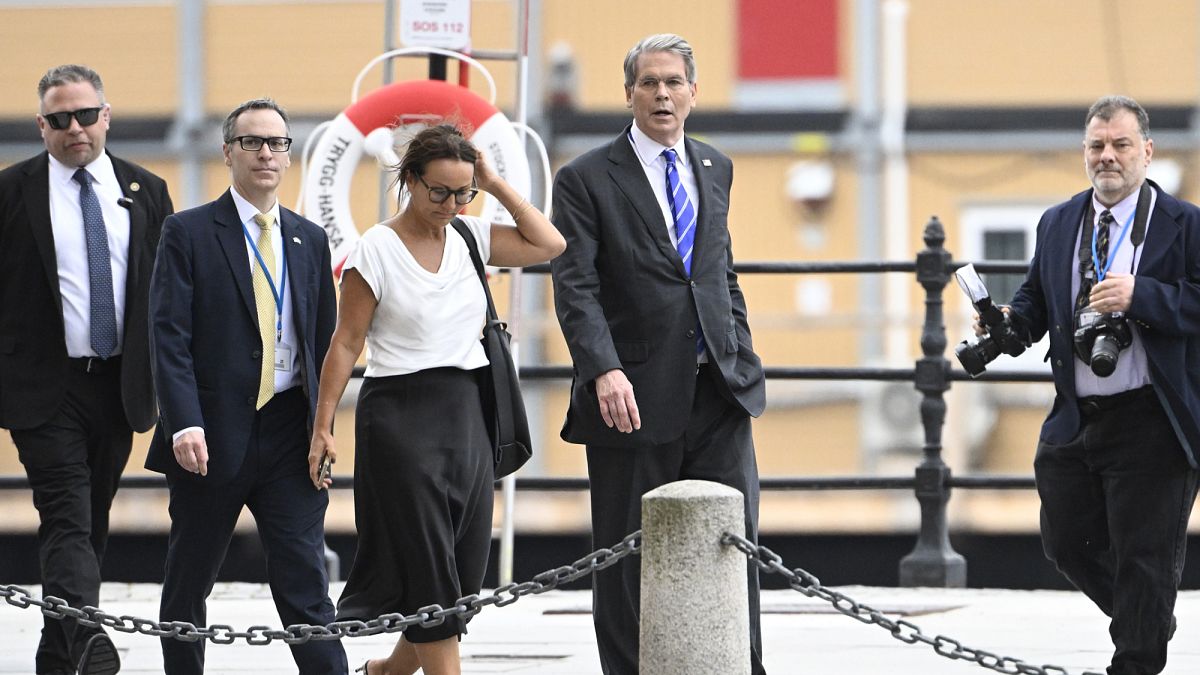

In recent developments on the global trade front, a calm yet pivotal shift is underway as the United States and China explore extending their current tariff truce. Following comprehensive discussions in Stockholm, negotiators from both countries have reached a tentative agreement to prolong the pause on additional tariffs, originally set to expire on August 12. This extension, however, awaits the approval of President Trump, embodying a cautious step forward in easing trade tensions.
The necessity of a tariff extension arises amidst unresolved issues in trade terms that both nations aim to reconcile. Despite the persistent deadlock, this move is viewed as a constructive gesture indicative of a shared interest in averting further economic strain. The tentative agreement reflects a mutual recognition of the importance of stable bilateral relations and the potential benefits of sustaining an environment conducive to dialogue and negotiation.
Concurrently, on the European front, a noteworthy alignment is taking shape between Brussels and Washington. The US and the European Union have committed to unite efforts against China’s surplus subsidized steel production, a move that underscores the evolving dynamics of transatlantic trade relations. Ursula von der Leyen’s strategic diplomacy has been instrumental in securing a trade agreement with the United States, which not only addresses trade imbalances but also fortifies a collective stance on maintaining fair market practices.
This fortified alliance symbolizes a broader realignment, as nations adapt to the challenges posed by global economic shifts and competitive pressures, particularly those emanating from China’s expanding influence. By fostering collaboration, the US and EU aim to establish a cooperative framework that supports sustainable trade policies and equitable growth.
In another sphere, controversy unfolds in Germany as the Nürnberg Zoo faces public backlash after the euthanization of 12 healthy Guinea baboons due to insufficient housing space. The zoo, which experienced a swelling population of baboons—exceeding the intended capacity of a facility opened in 2009—cited overcrowding and resultant conflicts among animals as driving factors behind the decision. The incident has sparked debate over ethical practices in wildlife management, highlighting the need for comprehensive strategies that prioritize animal welfare while balancing space and resources.
Parallel concerns of human rights come to the fore with calls for a US congressional hearing into alleged abuses at El Salvador’s megaprison. Delia Ramirez, a Democratic congresswoman, advocates for an inquiry into federal funding allocations and treatment conditions of detained migrants, emphasizing the importance of safeguarding human rights within detention facilities. This appeal for accountability reflects broader deliberations on immigration policy and humanitarian responsibilities stemming from international partnerships.
As these multifaceted developments unfold on the global stage, the overarching narrative is one of cautious optimism and measured progress. While challenges persist, the emergent dialogues and collaborative initiatives highlight an enduring commitment to fostering mutual understanding and cooperation. In navigating the complexities of international relations, the pursuit of constructive solutions remains a guiding principle, contributing to a foundation of stability and peace in an interconnected world.
Source: {link}
